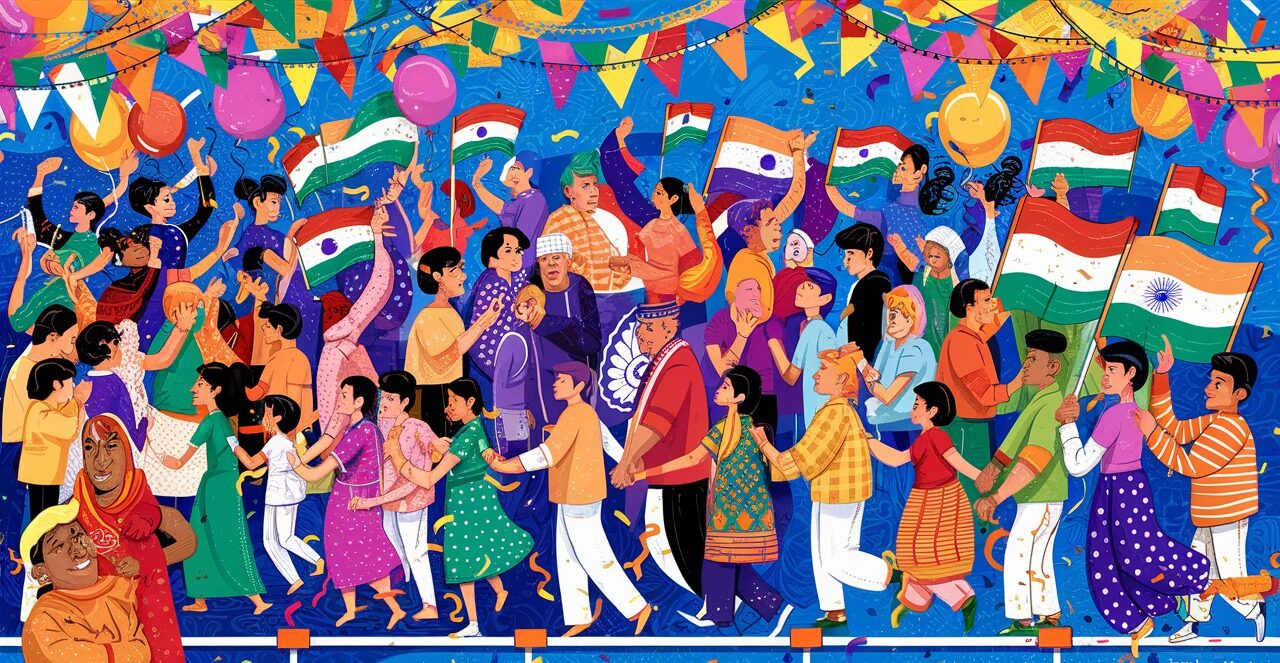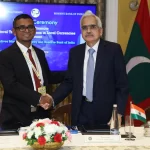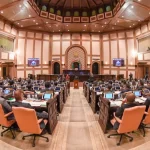As the world’s largest democracy concludes its extensive electoral process, the Maldives is closely watching the outcome of India’s Lok Sabha elections. These elections, which began on April 19 and wrapped up yesterday, have drawn significant attention both domestically and internationally.
Exit polls, conducted after the voting ban on surveys was lifted, predict a decisive victory for the Bharatiya Janata Party (BJP)-led National Democratic Alliance (NDA). According to most exit poll agencies, the NDA is projected to secure more than 350 seats in the 543-seat Parliament. While exit polls have occasionally missed the mark in the past, their predictions this year indicate a strong performance by Prime Minister Narendra Modi’s party.
This election, a six-week-long referendum on Modi’s decade in power, has seen a massive turnout, with over 950 million eligible voters participating. This makes it the largest democratic exercise in the world. The results will be officially tallied and announced on Tuesday.
Should the exit polls hold true, Modi will become only the second leader in India’s nearly 75-year history as a republic to secure such a significant consecutive mandate.
Mallikarjun Kharge, the president of the largest opposition party, the Indian National Congress, has dismissed the exit polls as “government surveys.” He remains confident that the official results will favor his alliance, which is expected to increase its tally.
This election has seen a diverse array of participants, with 8,360 candidates from 744 parties contesting across 543 constituencies. Notably, 47% of these candidates are independents. The participation of women candidates has risen to 10% in 2024, and the average age of candidates is 48 years. Furthermore, 69% of candidates from major parties possess at least an undergraduate degree, and 4% hold doctoral degrees.
In the midst of the election fervor, controversy has also surfaced. Prominent YouTuber and political commentator Dhruv Rathee released a 29-minute video titled “The Narendra Modi Files | A DICTATOR Mentality?” on May 19. The video, which quickly went viral with over 15 million views, critically examines Modi’s governance over the past two decades, labeling his approach as “dictatorial.”
In a related incident, a lawyer was arrested for sharing the video on WhatsApp. After securing bail, he was asked to hand over his phone for investigation. He responded by filing a request under the Right to Information Act to understand the legal basis for prohibiting the sharing of such messages on social media.
The Election Commission of India has faced criticism for its handling of the campaign, particularly for overlooking communal hate speeches. Notably, Assam Chief Minister and BJP leader Himanta Biswa Sarma openly targeted the Muslim community and leveraged religious sentiments by raising the issue of the Ram Mandir, disregarding the Model Code of Conduct.
From the Maldives, India’s election holds significant interest due to the close historical, cultural, and economic ties between the two countries. The Maldives anticipates economic stabilization and continuity of Indian foreign policy, which has been favorable towards its neighbors. During the BJP’s tenure, bilateral relations between the Maldives and India have gained considerable momentum, with increased cooperation in areas such as trade, security, and regional development.
Notably, during Modi’s last inauguration, President Abdulla Yameen was invited by India, highlighting the importance of Maldivian-Indian relations. This time, the question arises: Will India extend a similar invitation to President Mohamed Muizzu? If invited, it would mark Muizzu’s first official visit to India, a country that has extended favorable gestures since his inauguration. The “IndiaOut” phase appears to be over, and Maldivian officials, after facing substantial criticism on social media, have been making more mature and positive gestures towards India.
For the Maldives, a stable and prosperous India is vital. Changes in India’s political dynamics can affect tourism, investments, and regional security arrangements. As India waits for the final results, the Maldives, like the rest of the world, watches closely, aware that the outcome will significantly impact the region’s political and social landscape. The continuity of India’s supportive foreign policy is particularly crucial for the Maldives, ensuring continued economic growth and stability in the Indian Ocean region.












